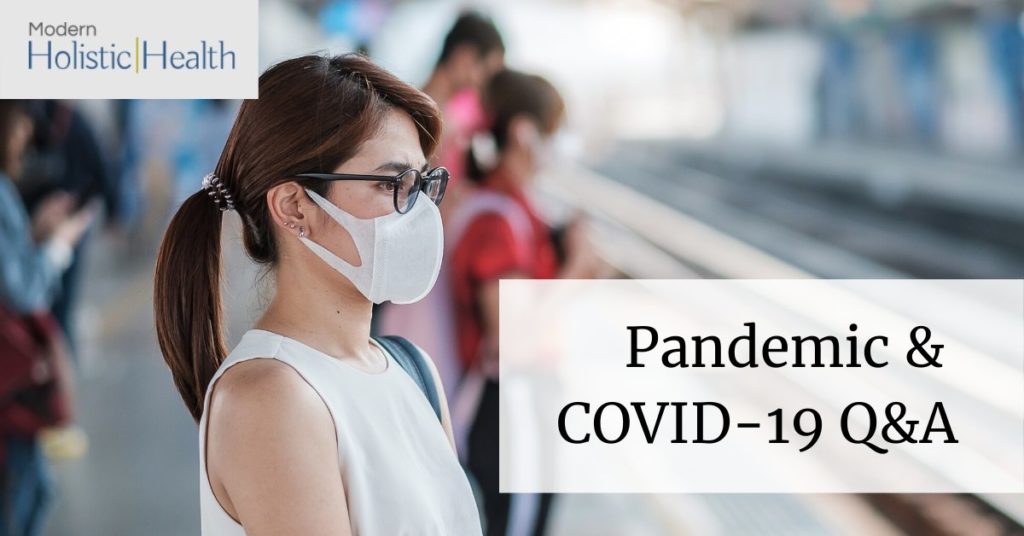But that still leaves the question, ‘what if I haven’t been sick? Do I still need to quarantine myself?’ Let’s discuss this from a medical perspective. Most viral infections are spread when people are not even feeling sick. This is one reason why viruses can spread so easily. For example, every year as countries go into the fall which is known as flu season, millions of people already have been contaminated with the flu virus but are not experiencing any symptoms. They are going about their daily routines and unknowingly spreading it to millions of others yet only around 1% of the millions who have been infected with that year’s strain of flu virus end up with the flu. Realistically it’s unreasonable to think you can ‘outrun’ a virus by staying in quarantine because that is simply not sustainable for the majority of people.
Those who easily become sick, those who have chronic illnesses that make them more likely to get sick from this virus, and the elderly are the ones who may benefit from self-quarantine but it’s important to understand also that too much quarantine will weaken the immune system because self-isolation prevents you from exposing yourself to the millions of viruses and bacteria that help keep your immune system in normal balance. The human immune system relies heavily on exposure to its environment in order to maintain itself.
3. How safe is the six feet in social distancing? Should it be more? If it’s windy, should you be further than 6 feet apart?
Understanding the history of how viruses spread so easily and knowing how virulent (fast-spreading) this current strain allows us to see that it’s spread is going to happen no matter what distance you stay away from others. The question we may need to be asking instead is ‘what can we do to make ourselves more resilient and resistant to getting sick from this virus’, not how do we escape it.
4. Is drinking from a public water fountain safe?
It’s best to get your water from a filtration system like an RO (reverse osmosis) filter, a Berkey filter or even a countertop RO system can work great. Using purified water filtration systems ensures you are not ingesting the many harmful chemicals and pathogens often found in local water municipalities.
5. Do you have to wipe down citi bikes / public transportation, like subway poles/seats? Is it safe to take an uber or taxi?
If you have a susceptibility to getting sick often or have a compromised immune system, or if you have the comorbidities (type 2 diabetes, obesity, high blood pressure for example) associated with making a person more susceptible to the virus then you might consider working on your health, and taking extra precautions when using taxis and public spaces like taking some Clorox wipes with you so you can wipe down your space. And make sure you wash your hands after coming in contact with areas you touch.
In general for those who are healthy, getting back to your daily routine that may involve public spaces and implementing a good handwashing regiment should be adequate.
6. Should you wipe down your grocery bags? Groceries? Mail?
If you feel better wiping everything down, consider that the overuse of toxic chemicals that are used to sanitize surfaces can cause health issues like brain chemistry imbalances, asthma, skin conditions, immunity problems, and even cancer. So if you are going to decide to wipe everything down consider using a nontoxic ‘clean’ (chemical-free) sanitizing wipe or spray.
7. Can you get ‘the’ virus from takeout food?
These other ‘infectious’ microorganisms that commonly infect people via food sources also can cause life-threatening complications, especially in those with chronic diseases (co- morbidities) who are already health-compromised. So a good question to ask yourself before you order out is whether or not you are ok with taking the risk that you may, in fact, contract any number of ‘infections’ from your take out. Another important thought to consider is where you are getting your takeout from? Have you checked their inspection reports? Have you been ordering from that establishment in the past with no health issues resulting from their food? Do they appear to maintain good standards of cleanliness? Bottom line, if you want to order takeout, do it. If you feel uncomfortable about it then create your own masterpiece at home – If you are practicing healthy eating habits that support your health, a home-cooked meal is most likely much healthier anyway!
8. Does it stay on the bottom of your shoes?
9. Can it be spread on pet fur?
10. Does heat kill the virus? And at what temperature? How long does it take for UV rays to kill the virus?
11. Are there any medications that can make you more susceptible to catching the virus or that can make symptoms worse?
Unfortunately, this is not being discussed across mainstream media channels. Focusing on what CAN be done in terms of lifestyle and dietary changes is what many health-savvy people and health professionals are focusing on. Lifestyle and dietary changes alone can, in most instances, reverse the most common comorbidities that are ultimately causing deaths to those who get this coronavirus strain. Comorbidities like high blood pressure and type 2 diabetes, for example, make a person who does get this coronavirus, likely to develop into severe ‘virus’ symptoms.









